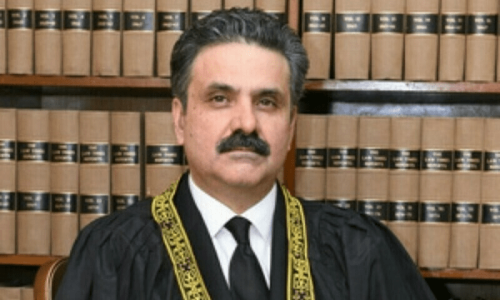A DEADLY attack in Quetta has marred what was otherwise a largely peaceful polling day across the country. It appears that while the unprecedented security net thrown around the polling process was quite effective, the unique and harrowing circumstances of Balochistan rendered the province pervasively vulnerable.
It is too early to reasonably assess if the Election Commission of Pakistan was able to manage the voting process across the country better than in previous elections.
There do appear to be at least some indications that persistent problems — such as access and entry to polling stations, barriers to women voting in some parts of the country, low-level, localised political violence, disruptions etc — were once again in evidence on polling day. That ought to be unacceptable.
Setting aside the political controversies and widespread allegations, the ECP as an institution in its current form has more independence, is better resourced and has more experience in conducting elections than any previous version of the commission. Surely, the ECP can be expected to progressively improve the voting experience for the public.
The real challenge to do so may not be in big cities or parts where there is a media presence, but in less-accessible, far-flung and remote areas. The ECP must do better.
What can be unequivocally applauded is the electorate. In a bitterly divided polity and with the overall results far from certain ahead of polling time, in hot and humid conditions across much of the country, the voter was overwhelmingly disciplined and patient everywhere.
Some skirmishes between political parties and supporters of candidates have been reported, but they do not appear to be widespread.
Provincial and national turnouts will be confirmed by the ECP in due course, but it is already apparent that large parts of the electorate deeply value their right to vote as guaranteed by the Constitution.
The roots of democracy include strengthening democratic institutions, but the commitment of the people to freely choosing their elected representatives is what truly binds the democratic process together.
Too often, democracy in Pakistan is cast as a private struggle among elites and institutions having little bearing on the life of the average citizen.
That suggestion is not just untrue, it is also a dangerous assertion that can only undermine democracy. The Pakistani citizen has consistently and courageously demonstrated a commitment to the electoral process, and democratic continuity permits that widespread sentiment to express itself. The Pakistani voter is deserving of respect and admiration.
Finally, at the time of writing, it is unclear who will lead Pakistan at the federal level and in the provinces. Overnight, the picture may be — hopefully, will be — clear.
Whichever parties or coalitions emerge victorious, they must approach politics with a more democratic and conciliatory spirit. For national stability, politics cannot be allowed to return to an era of open warfare.
Published in Dawn, July 26th, 2018













































